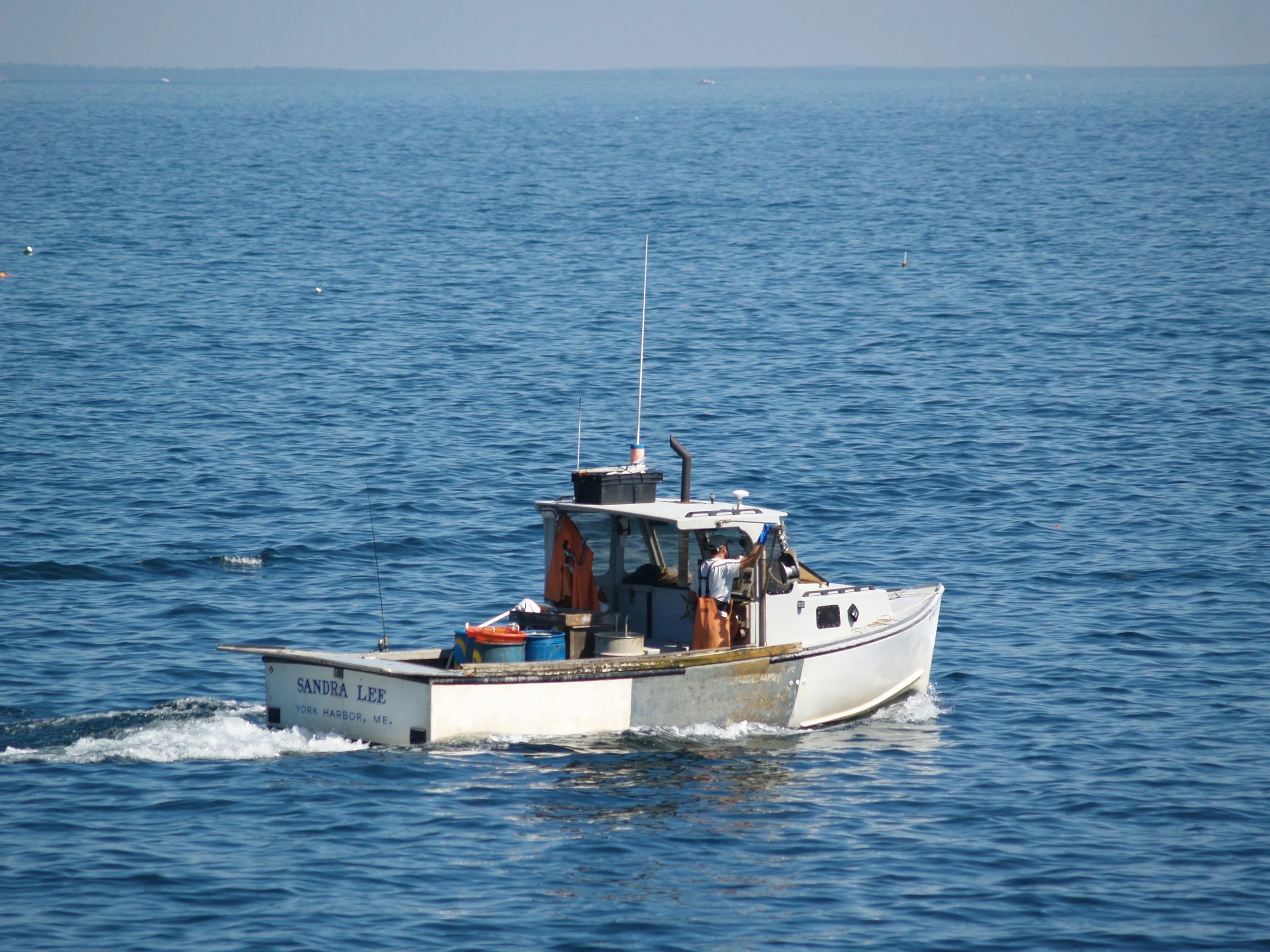
UN for ME.
Fishing, Oceans
Maine’s fishermen harvested $709 million worth of fish and lobster in 2024 an industry that supports an estimated 33-thousand Maine jobs. United Nations organizations help keep Maine’s fisheries—and the Atlantic they depend on—healthy and predictable.
The most visible threats to Maine’s ocean come from pollution. That’s why the International Maritime Organization’s MARPOL Convention curbs oil, chemical, and garbage pollution from ships, reducing hazards to fish stocks and the working waterfront. Meanwhile, the UN Environment Programme continues to negotiate an agreement to tackle plastic pollution, including at sea.
Less visible threats are warming temperatures, which acidify ocean waters and create a series of damaging and cascading effects on ocean ecosystems. The UN’s World Meteorological Organization tracks rising ocean temperatures worldwide, an essential benchmark for the Gulf of Maine Research Institute, which has found that the Gulf of Maine is warming nearly three times faster than the world’s oceans.
Out on the high seas, the UN Fish Stocks Agreement sets rules for conserving highly migratory species like tuna and swordfish that move across borders and into New England markets, reinforcing sustainable catch limits. This and additional UN agreements form the framework for managing commercial fishing beyond national jurisdictions.


